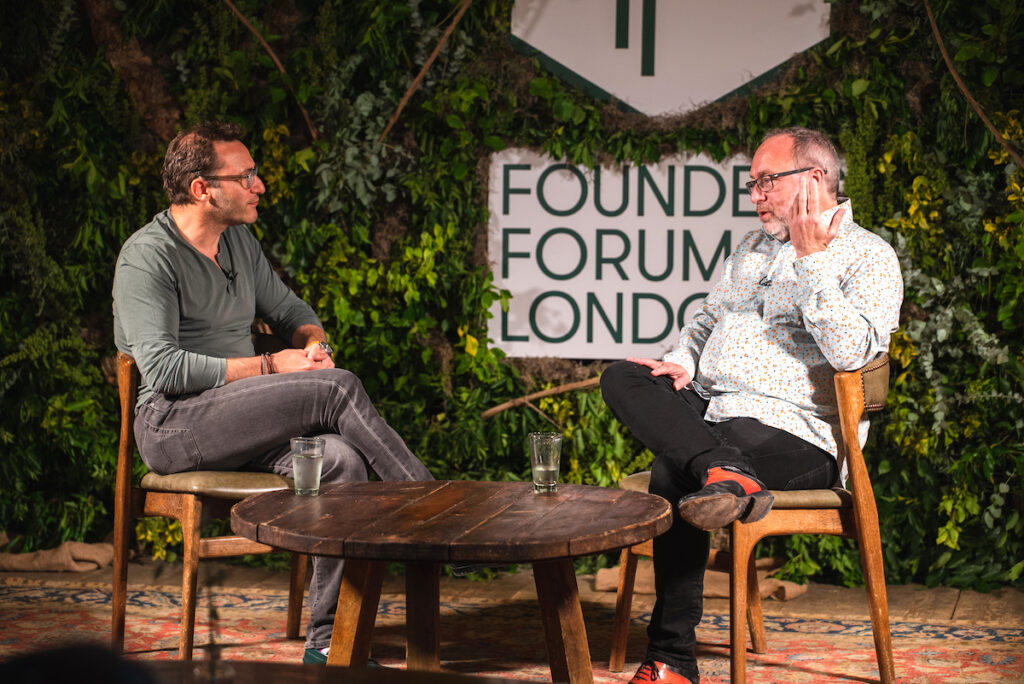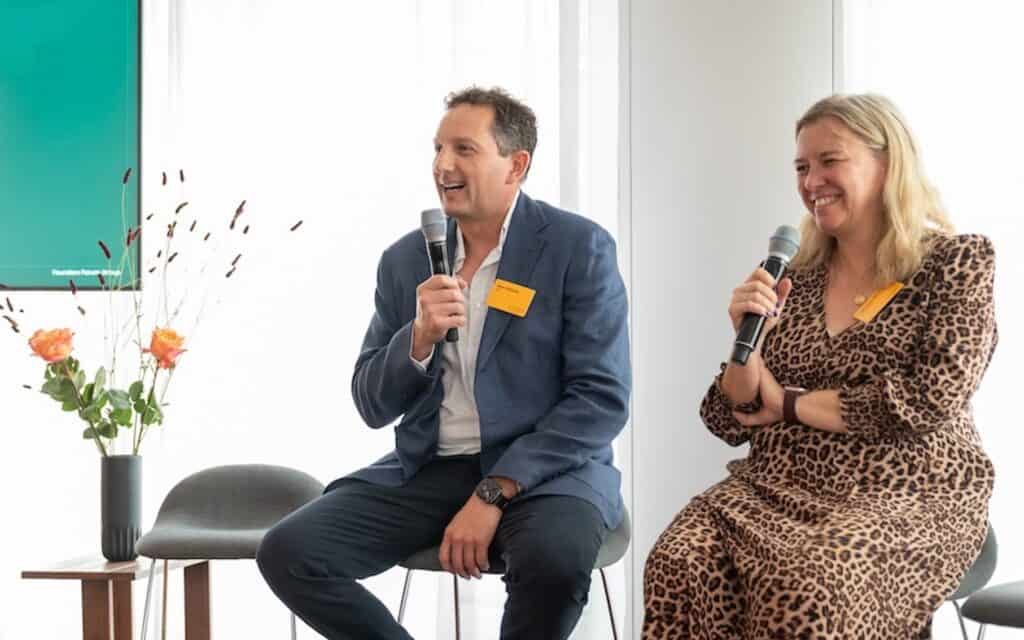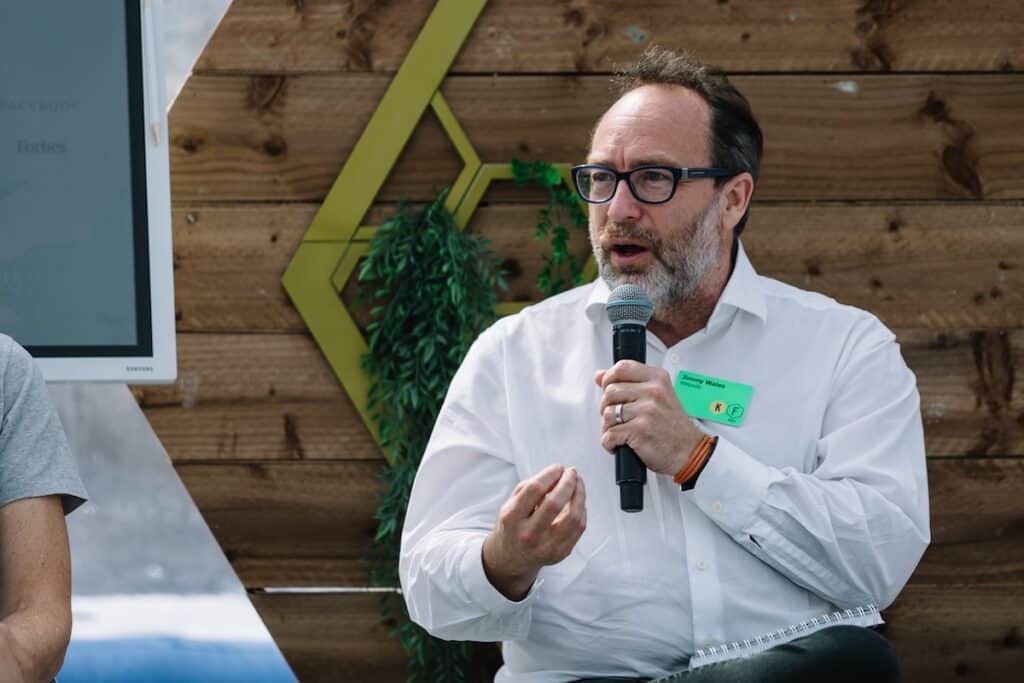Last updated on October 30, 2023
Leadership guru, Simon Sinek, reveals the five characteristics that all successful entrepreneurs have in common.
What makes a successful entrepreneur?
According to leadership guru, Simon Sinek, optimism is the one trait that every entrepreneur has in common. Balancing that optimism with a healthy dose of realism can make the difference between business failure and success.
At Founders Forum 2023, Simon exchanged ideas and philosophies with Wikipedia’s Jimmy Wales for his podcast, A Bit of Optimism, streamed live from our YouTube stage.
A self-proclaimed optimist, he’s the author of best-selling books, Start With Why and The Infinite Game, and known for popularising the concept of WHY in his first Ted Talk in 2009, now the third most-watched TED talk of all time.
We caught up with Simon who shared the five skills and qualities that all the best entrepreneurs and startup CEOs have in common:
1. All Entrepreneurs Are Optimists
Whether you call it naivety or optimism, all entrepreneurs have an idea that they believe really matters and they risk the overwhelming chance of failure to try to go and make it happen. That extreme optimism drives the passion and the stubbornness that so many entrepreneurs have.
Especially at the beginning, you don’t have resources or market share. Instead, belief is the number one thing and you need to surround yourself with people who share that belief.
2. But the Best Entrepreneurs Balance Optimism with Realism
Realism comes later. As your organisation grows, you want people who share your values and vision, but that absolute dogged belief may not be necessary. Some people just want to get paid, be rewarded for their hard work, and feel like they’re part of a team and that their work matters.
The most seasoned entrepreneurs strike the right balance between optimism and realism – that’s what you need to get right.
3. And They Know Pessimism Can Be Useful
There are two types of pessimists. There are the pessimists that just stand on the sidelines and throw stones – get those people out. But there are also the pessimists who point out when something is wrong and are willing to roll up their sleeves, get in the thick of it, and sort the problems out.
As their organisations become successful, a lot of entrepreneurs push all the pessimists out just because they disagree with them – and that’s a mistake. As you grow, understanding your weaknesses and listening to your people is what helps you build great structures and organisations.

4. The Most Successful Entrepreneurs Are Students of Leadership
How can founders, entrepreneurs, and leaders build a healthy, sustainable culture?
There’s no such thing as an expert in leadership; just like there’s no such thing as an expert parent. You need to be a student of leadership. You have to read articles, books, go to events, and talk to other leaders to develop and learn.
Get over the idea that your credibility comes from having all the answers; it doesn’t. You’re surrounded by people who want to help, but if you say you have all the answers, nobody will bother to help you. Instead, your credibility comes from building an environment where other people can thrive.
5. And They Put Humanity First
The leadership model that has been too largely embraced by the business world is the old-fashioned, Jack Welch-driven model of the 1980s and ‘90s. I’m the power; everybody else is disposable. If you perform, you’re welcome; if you can’t perform, you’re out.
We need to inject more humanity back into leadership. We saw how during covid leaders picked up the phone and called their teams one by one – that’s good leadership.
My fear is that we return back to the old ways now that we’re in a post-lockdown world. What we need are more human skills. When you can be a better human being that will make for a better team.
 All Posts
All Posts


